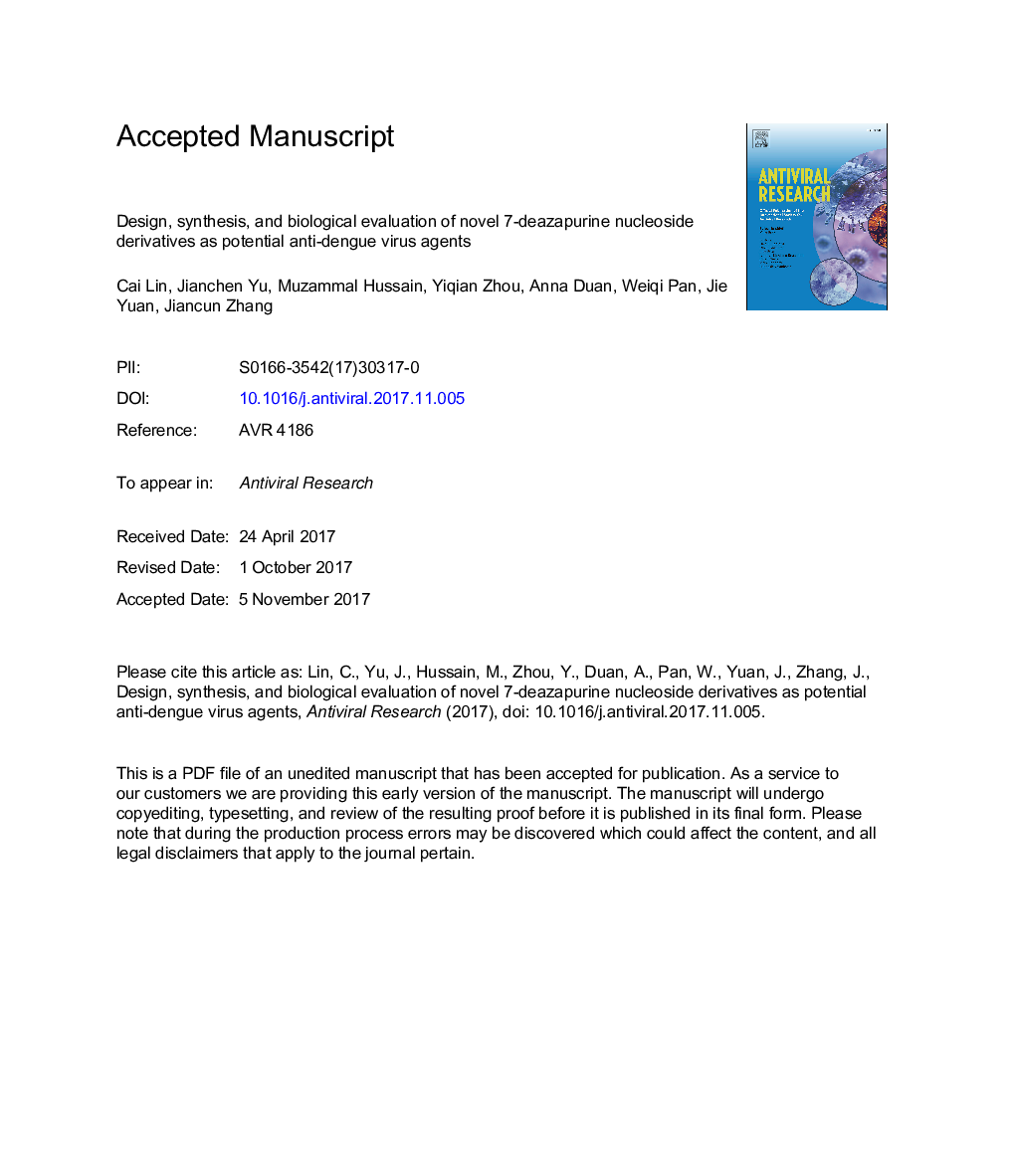| Article ID | Journal | Published Year | Pages | File Type |
|---|---|---|---|---|
| 8523436 | Antiviral Research | 2018 | 41 Pages |
Abstract
Dengue fever, caused by four distinct serotypes of dengue virus (DENV-1 to -4), has become the fastest spreading human infectious disease in recent years. Despite extensive efforts, there is no specific antiviral treatment approved for dengue until now. Nucleoside inhibitors represent an actively pursued area to develop small-molecule anti-dengue virus agents. In this study, we designed and synthesized a series of 7-deazapurine nucleoside derivatives and evaluated their anti-DENV activity. Our design strategy and structure activity relationship studies revealed 6e as the most potent inhibitor (EC50 = 2.081 ± 1.102 μM) of DENV replication. 6e suppressed RNA levels and DENV E protein expression, without causing any apparent cytotoxicity in A549 and HepG2 cells (CC50 = 150.06 ± 11.42 μM, SI = 72.11 in A549 cells, and CC50 = 146.47 ± 11.05 μM and SI = 63.7 in HepG2 cells). In addition, 6e showed similar inhibition potency against four serotypes of DENV, suggesting that it restrains some evolutionarily conserved targets essential for DENV replication. We conceive that 6e may serve as a promising lead compound for anti-DENV drug development.
Keywords
Related Topics
Life Sciences
Immunology and Microbiology
Virology
Authors
Cai Lin, Jianchen Yu, Muzammal Hussain, Yiqian Zhou, Anna Duan, Weiqi Pan, Jie Yuan, Jiancun Zhang,
